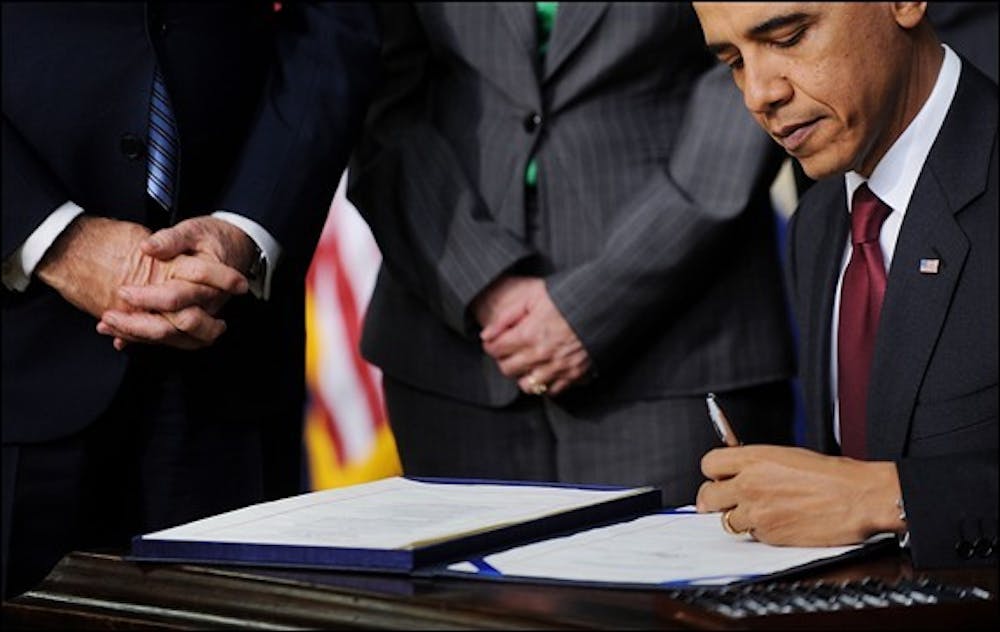President Barack Obama has proposed a new tax on individuals making more than $1 million per year. The tax is meant to ensure that the wealthy pay the same tax rate as middle-class Americans.
Obama has named his new tax proposal "The Buffett Rule" after billionaire investor Warren Buffett, who recently wrote an op-ed piece for The New York Times about what he perceives as Washington's "coddling" of the super rich, like himself.
In the article, Buffett wrote that while he was taxed only 17.4 percent of his taxable income, others in his office who made less than he did had to pay about 36 percent. The reason, according to Buffett, is that capital gains tax rates are much lower than income tax rates. Since many wealthy Americans make most of their income from capital gains, they end up getting taxed less.
Senior Tyler Zoda, an economics major at Elon University, said he agreed with Buffett's arguments.
"Warren Buffett seems like a reasonable guy to me," he said. "He makes smart investments. I would trust that if he encourages higher taxes on himself, he has good reasons behind it."
Capital gains refer to money earned on some kind of investment. If an individual buys a stock at one price and is able to sell it at a higher price later, that is a capital gain. If an individual starts a business and makes money off of it, this is also considered a capital gain, according to Tom Tiemann, an economics professor at Elon.
Obama's proposal has met staunch resistance from Republicans who argue new taxes will stunt job growth and hurt the economy. Rob Smeaton, an Elon alumnus and pharmaceutical representative in Wilmington, said he thought the new tax would limit the ability of some companies to expand and hire more people.
"I think that at the end of the day it's a poor decision," he said. "If you take money away from millionaires and billionaires, you are taking money away from people that hire everyone else. If you take money from them it would only cause more unemployment."
Smeaton is not in the tax bracket that would be affected by the new increase.
Tiemann disagreed with many of the grievances Republicans have. Higher tax rates do not necessarily discourage investment, he said.
"Wealthy people aren't going to decide not to make an investment or start a business because the tax rate is a few points higher," he said. "If the tax rate was something like 85 or 90 percent, it would be a definite disincentive."
The new proposal comes after this year's debt crisis and subsequent deal, where politicians in Washington finally agreed to a plan that would attempt to solve America's debt problem through both increasing revenue and cutting spending.
Solving America's debt problem requires a combination of raising more revenue and cutting spending. But, most people are eager to cut taxes without realizing what they might lose.
"If we want to have the government services we have come to expect and gotten used to, we can't do that with the current tax code," Tiemann said. "Even if we had very little unemployment, the money we would be taking in from taxes at current rates would not cover the cost of all the things that Americans want, we would still be in a deficit."


